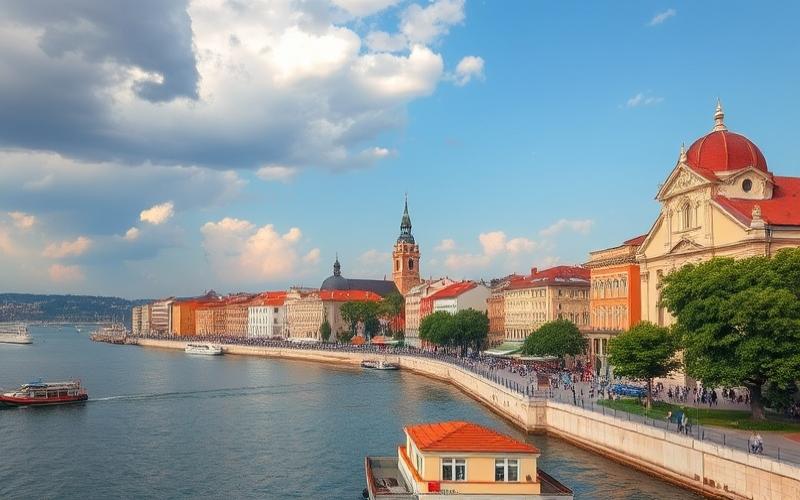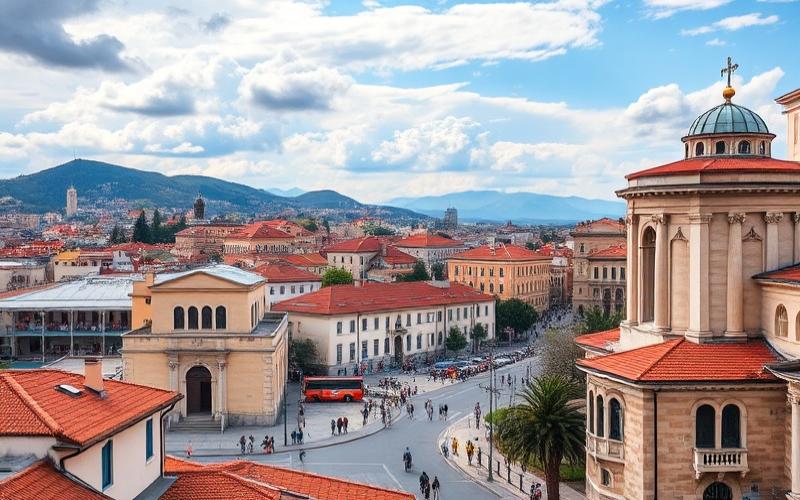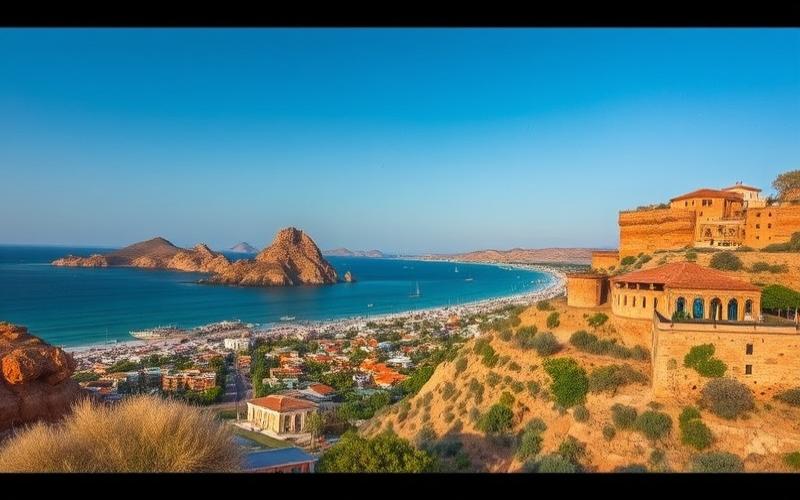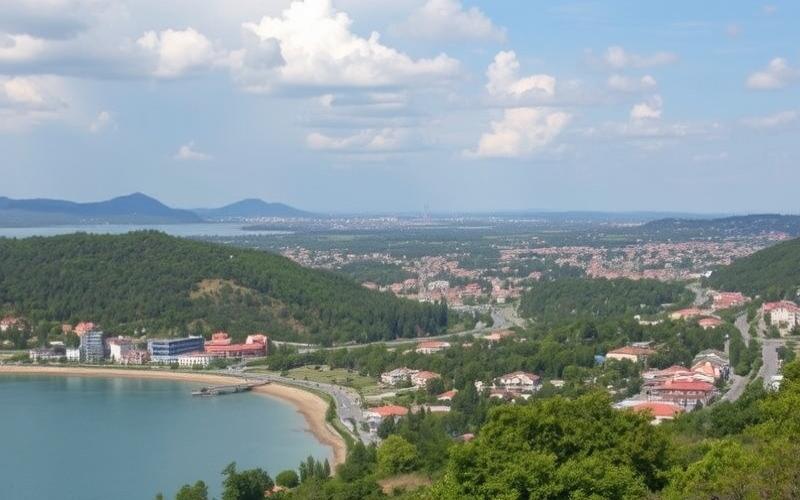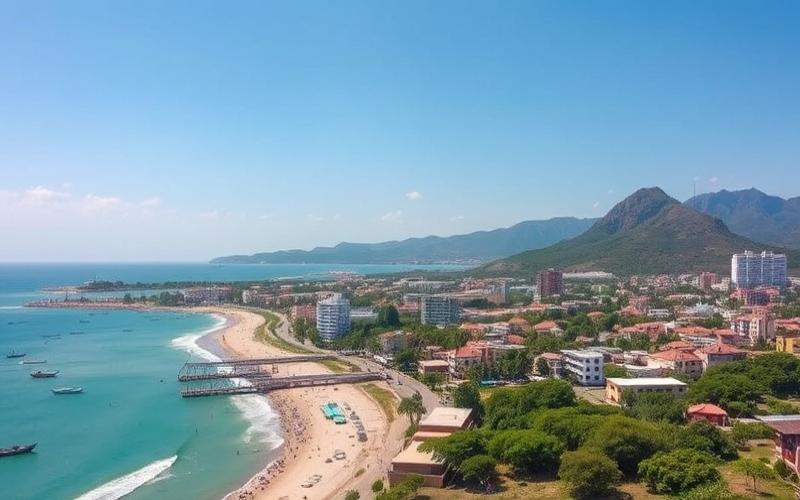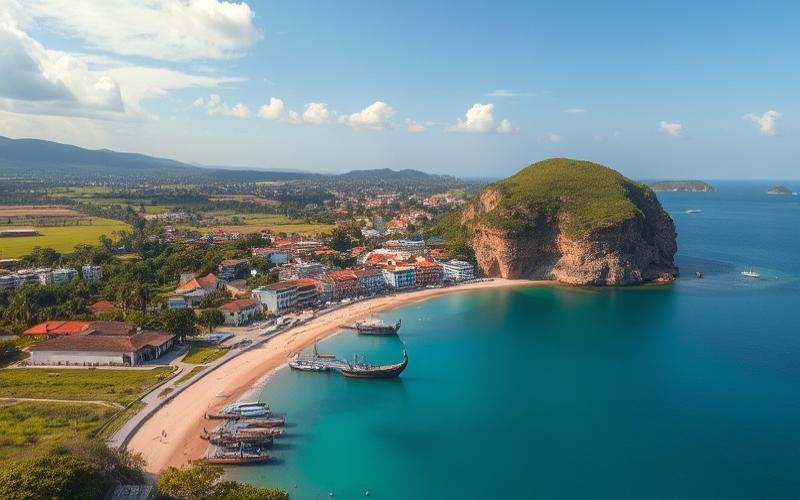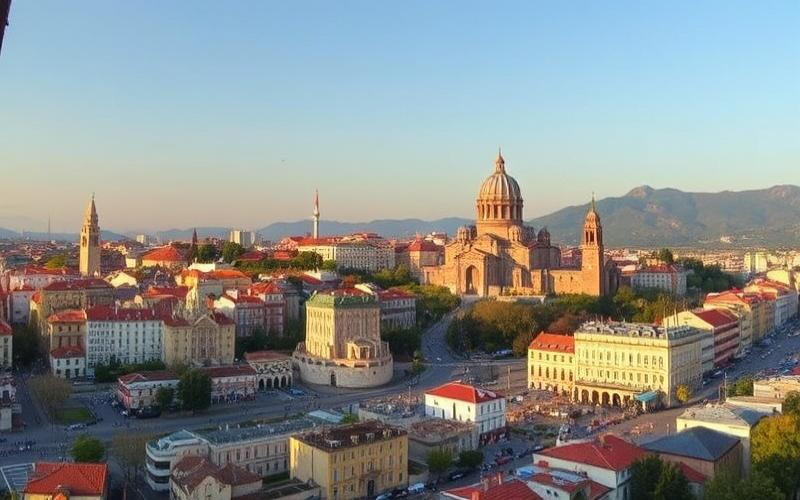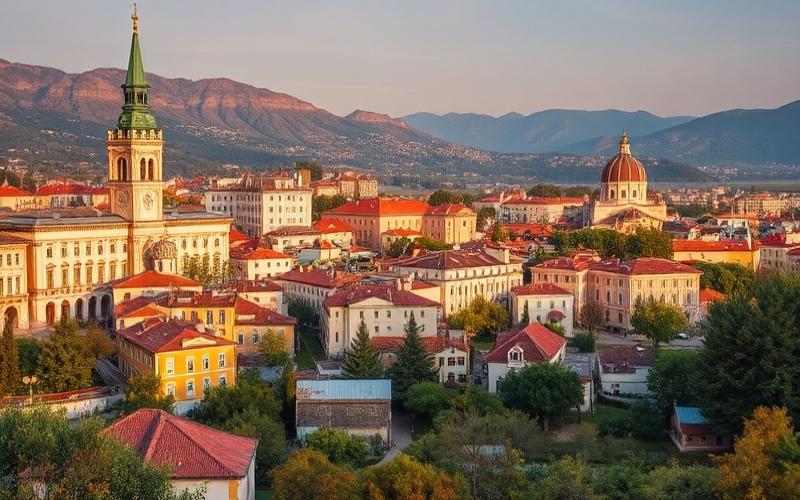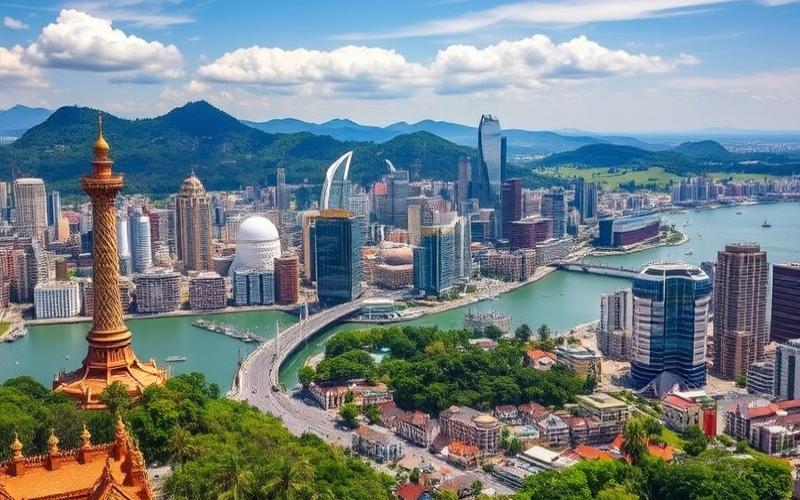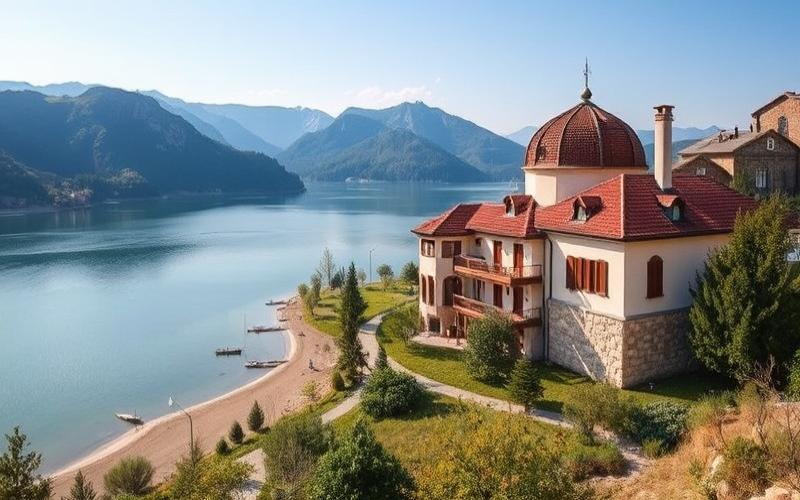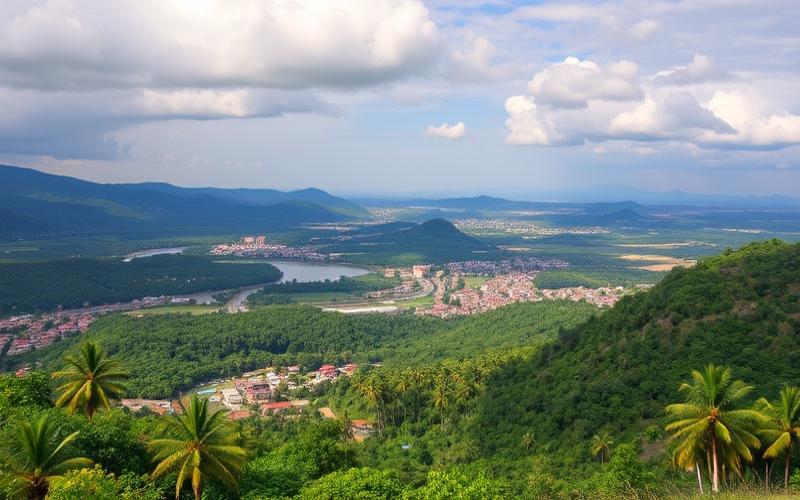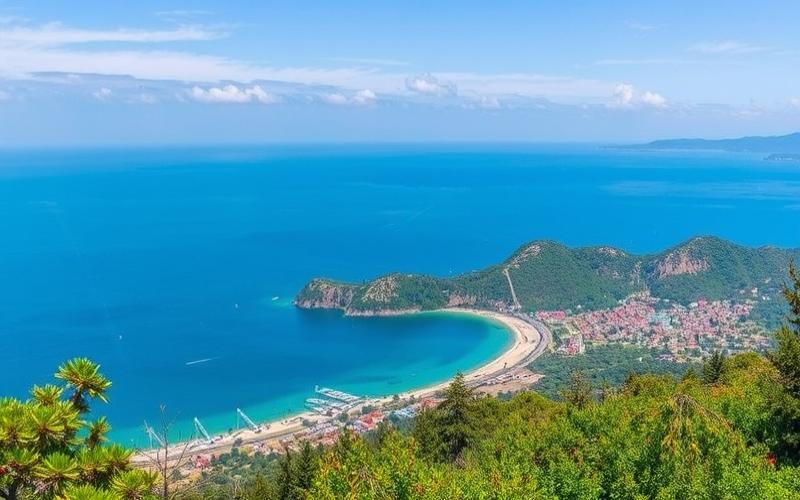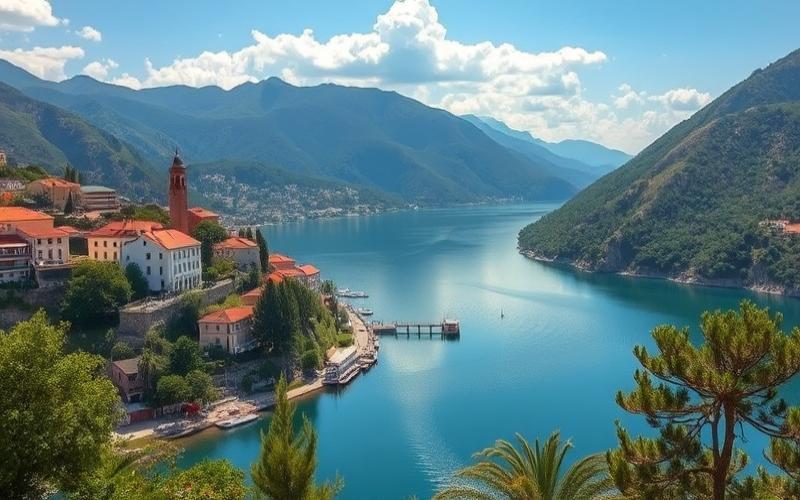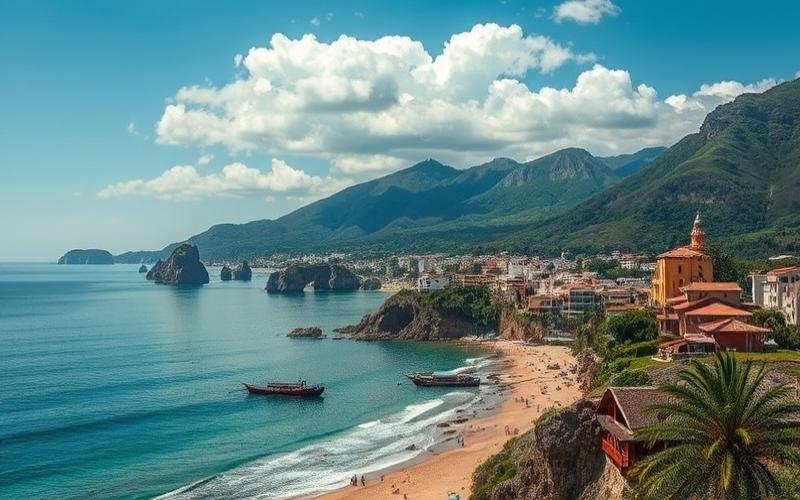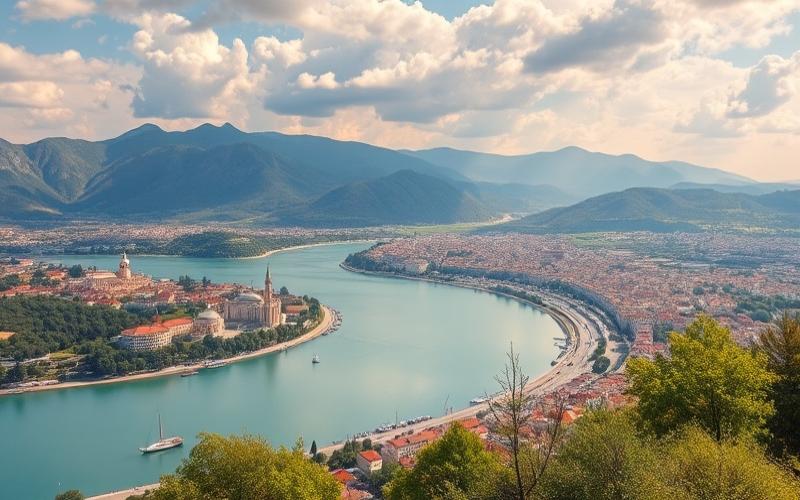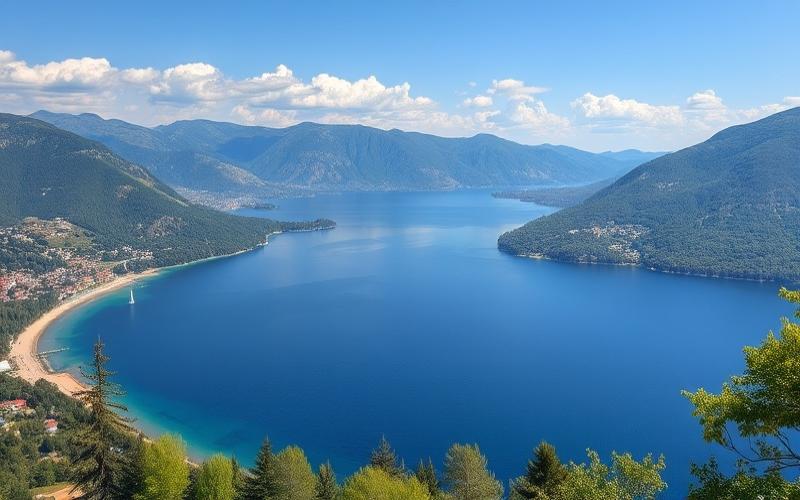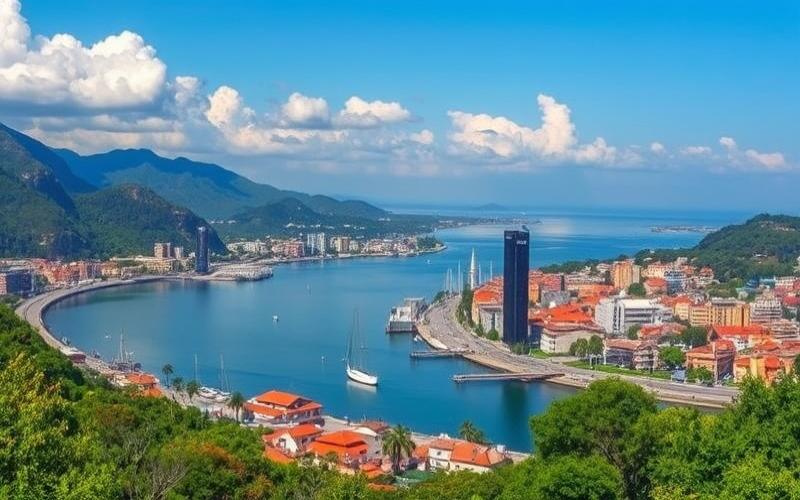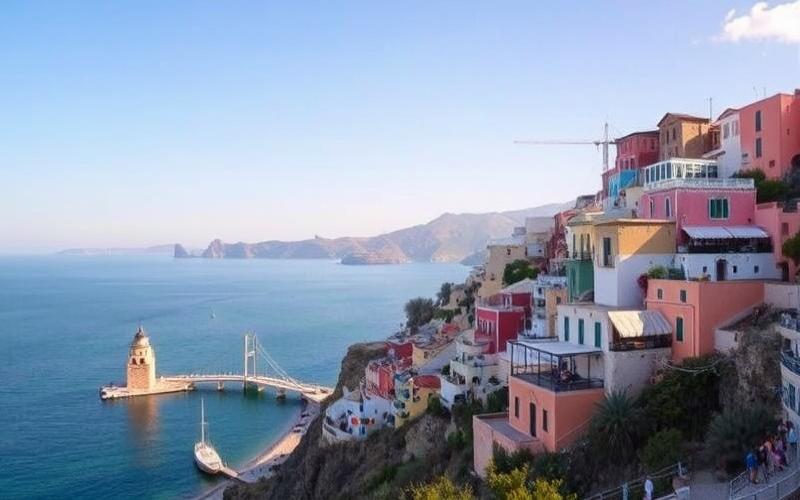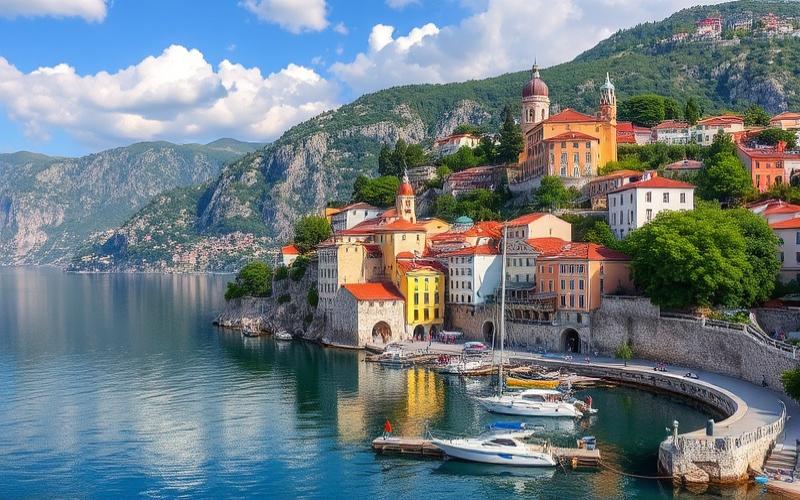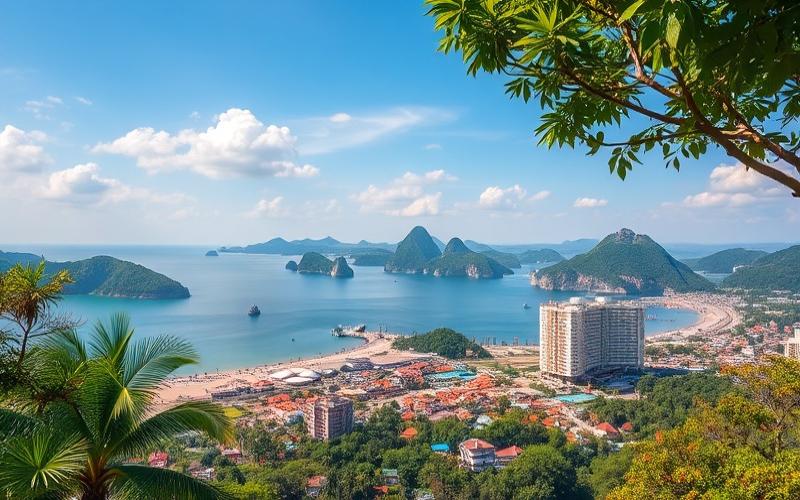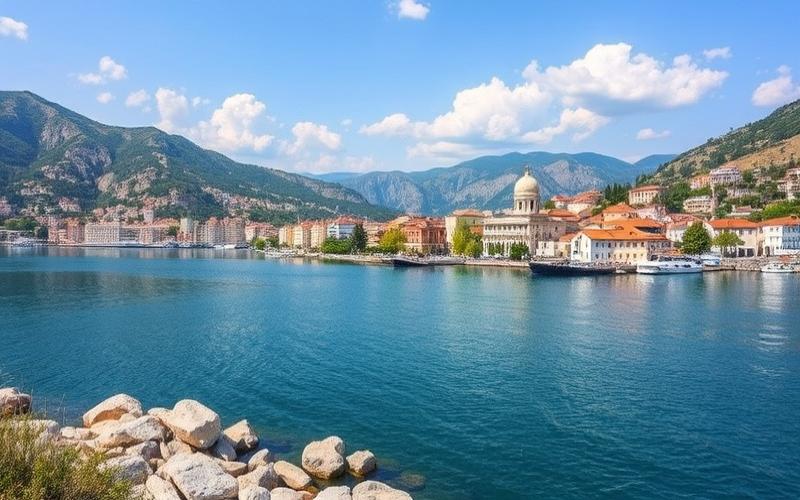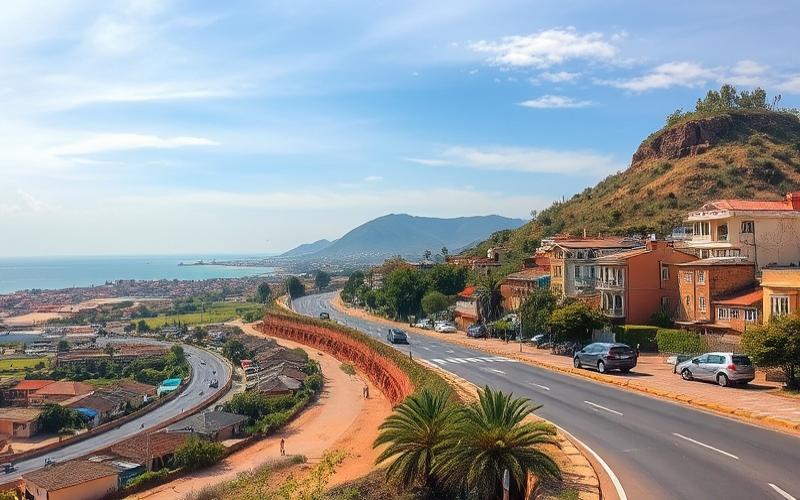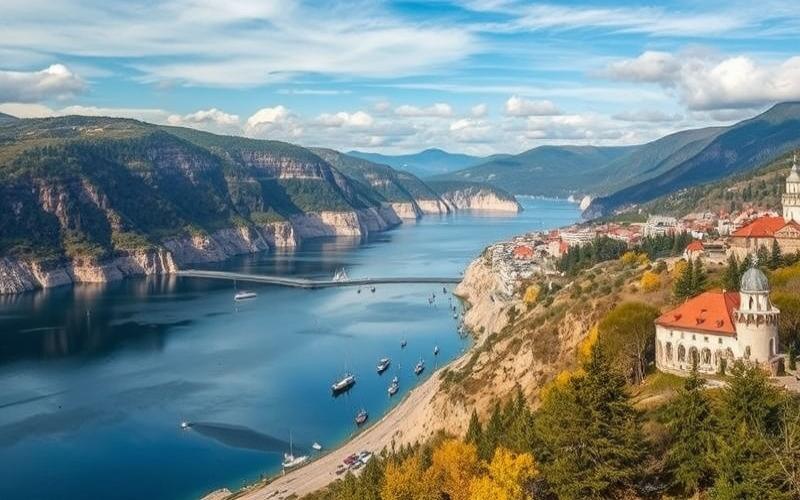
 Published on and written by Cyril Jarnias
Published on and written by Cyril Jarnias
Real estate purchasing in North Macedonia presents an intriguing adventure for foreigners eager to explore this Balkan nation’s emerging market. With a growing economy and favorable legislative framework, becoming a property owner in North Macedonia offers not only the opportunity to own a piece of its rich cultural heritage but also to invest in a booming sector.
However, the process can appear complex as it involves navigating various regulations and specific requirements. Understanding the nuances of local land laws and administrative procedures can transform this experience into a smooth journey.
This article aims to clarify the different steps necessary to facilitate investment in this charming country and pave the way for successful placement.
Understanding Real Estate Regulations in North Macedonia
The legal framework for real estate transactions in North Macedonia relies on a set of laws and regulations governing property purchase, sale, and leasing operations. Several regulatory bodies oversee the administrative and legal compliance of transactions.
Primary Legislation:
- The Law on Property and Other Real Rights organizes the transfer, land registration (cadastre), and use of real estate properties.
- The Law on Contracts imposes strict obligations regarding the drafting of notarial deeds for each transaction.
- Since 2025, specific legislation has strengthened environmental standards for any new construction or major renovation.
Regulatory Bodies:
- The National Cadastre Agency manages the legal registration of properties.
- Public notaries ensure formal compliance with the contractual process (identity verification, legal validity).
- The Energy Agency ensures that new or renovated buildings comply with ecological standards imposed by the recent energy law.
| Agency | Main Role |
|---|---|
| National Cadastre Agency | Verifies and validates the effective property transfer; maintains the official land registry |
| Notary | Authenticates all transactions; guarantees legal security |
| Energy Agency | Controls compliance with green standards for new/renovated constructions |
Restrictions for Foreign Buyers:
- Foreigners can acquire apartments but are generally excluded from direct purchase of agricultural land or forest land.
- To buy a single-family home with land, the property typically must be located in an urban area without specific restrictions.
- Certain border or strategic areas are also subject to specific prohibitions for non-residents.
Specific Procedures for International Buyers:
- Prior declaration to local authorities
- Possible ministerial authorization if the location is deemed sensitive
- Mandatory notarial validation with certified translation if documents are issued in a foreign language
- Payment through transparent banking channels to avoid any suspicion related to money laundering
Synthetic List of Mandatory Steps:
- Verification of land title with the cadastre
- Signature before a local public notary
- Registration with the national property registry
Recent concrete example:
In 2024 in Skopje, a German investor was able to purchase a new apartment in the city center after verifying that the property was not located in a restricted area; however, they had to provide an officially translated file along with clear proof of legitimate origin of the funds used to finalize the acquisition.
In all cases involving a foreigner,
mandatory presence before a local notary,
complete declaration to the cadastre,
and sometimes even a special administrative authorization are required – especially outside classic urban areas.
Expected developments starting in 2025 will further strengthen these administrative requirements, particularly regarding energy: any acquisition of a new building will need to include a certificate compliant with the latest national ecological standards.
Good to Know:
Real estate transactions in North Macedonia are primarily governed by the Law on Property and Other Real Rights, as well as the Law on Land Title Verification. Key regulatory bodies include the National Cadastre and the Ministry of Justice, which ensure legal compliance of transactions. Foreigners can purchase residential and commercial properties but face restrictions on agricultural land and protected sites, often requiring special permits or establishing a local company to bypass these limitations. International buyers generally must declare their purchase to authorities and provide proof of fund origin. A recent example is a German national who had to undergo a lengthy legal procedure to acquire non-agricultural land, illustrating the importance of thoroughly understanding the regulatory framework before investing.
International tax navigators are tools or experts who assist individuals and companies in understanding and optimizing applicable tax rules during cross-border operations. Their role is crucial for foreign buyers as they help anticipate double taxation risks, identify local and international reporting obligations, and best leverage tax treaties signed between states.
International taxation encompasses all rules applicable to operations conducted in an international context (foreign investments, expatriation, international assets). It particularly aims to determine where income will be taxed and to limit double taxation through bilateral conventions.
Main Tax Considerations for Foreign Real Estate Purchase in North Macedonia:
Local Taxes upon Acquisition:
- Property Transfer Tax (generally around 2-4% of the property price)
- Notary fees (variable)
- Annual Property Tax, with rates often depending on the cadastral value of the property
Taxation on Income Generated by the Property:
Rental income may be subject to local taxation.
Exact modalities sometimes depend on the investor’s actual country of tax residence.
Real Estate Capital Gains:
If resold at a profit, capital gains may be taxed locally.
International Conventions Aimed at Avoiding Double Taxation:
North Macedonia has signed various agreements to ensure the same income is not taxed twice (in the home country and in Macedonia).
| Double Taxation Convention | Application during Purchase/Resale | Concerned Countries |
|---|---|---|
| Yes | Limits cross-taxation | France, Germany, Switzerland… |
Practical Tips for Finding a Competent International Tax Expert:
- Prefer a lawyer or advisor with confirmed experience in:
- Cross-border real estate
- Non-Macedonian residents
- Practical knowledge of conventions signed by Macedonia
- Verify if they are a member of an international network or hold a recognized certification in international tax law
- Request a detailed quote specifying:
- Personalized analysis based on your country of origin
- Consideration of recent Macedonian specifics (amended laws)
Major Tax Differences Between North Macedonia and Some Countries Frequently Represented Among Foreign Buyers:
| Key Point | North Macedonia | France / Germany / Switzerland |
|---|---|---|
| Acquisition Tax | Moderate | Often higher |
| Rental Income Taxation | Relatively simple | Possible progressivity |
| Real Estate Capital Gains | Taxed locally | Sometimes exempt under conditions |
| Double Taxation Convention? | Generally yes | Yes |
Important Points to Monitor During Purchase:
- Ensure your country has signed a tax convention with Macedonia.
- Verify if you must declare this asset in your national tax return.
- Anticipate any local legislative changes that could impact your rights or obligations.
Recent legislative amendments have strengthened certain anti-tax evasion measures. Projects are also being discussed regarding a potential future increase in property taxes to combat foreign speculation. Therefore, regular monitoring through your specialized advisor is essential.
To navigate these complex issues serenely, it is recommended to integrate from the outset an expert well-versed in international transactions and their legal optimization.
Good to Know:
International tax navigators are essential for foreigners wishing to invest in real estate in North Macedonia, as they help navigate the complex tax landscape. Buyers should inquire about property tax, as well as potentially applicable VAT, while considering double taxation conventions, especially if their home country has agreements with North Macedonia to avoid additional impositions. It is crucial to consult an international tax expert, particularly if significant differences exist between local tax laws and those of the buyer’s country of residence. For example, countries like Germany or Russia, which are frequent origins of buyers, may have different tax regimes influencing their obligations. Also stay informed about recent or planned changes in tax standards that could lead to strategic adjustments.
Document Checklist for Buying in North Macedonia
Complete and detailed list of documents required for foreigners wishing to purchase real estate in North Macedonia:
- Valid passport or identity card
- Property deed of the concerned property (provided by the seller)
- Sales contract drafted in Macedonian (and generally also in English to avoid misunderstandings)
- Special authorization from the Ministry of Justice (required depending on nationality, particularly for third-country nationals outside EU/OECD)
- Macedonian tax identification number
- Proof of tax payment:
- Land sale tax
- Real estate VAT, if applicable
- Cadastre registration fees
- Annual property tax
| Document | Detail / Condition | Translation/Legalization Required | Where to Submit |
|---|---|---|---|
| Passport or ID card | Original + certified copy | Sworn translation | Notary, then cadastre |
| Current property deed | Provided by seller | No | Notary |
| Sales contract | Mandatory drafting/notarization | Yes, into Macedonian | Notary |
| Ministry of Justice authorization | Depending on buyer’s nationality | Legal translation | Ministry/Notary |
| Tax number | To obtain from local tax authorities | No | Local tax administration |
| Proof of tax and fee payment | Original receipts | No | Tax administration/cadastre |
Important Points on Translation and Authentication:
- All foreign documents must be translated by a sworn translator into Macedonian. Copies must be legalized (apostille or consular legalization depending on the country of origin).
- The final contract must be signed before a Macedonian public notary.
- All documents – once notarized – are submitted to the National Real Estate Cadastre Agency (“AREC”) to officially register the transfer.
Simplified Procedure:
- Gather all necessary documents in their original version.
- Have all foreign documents officially translated into Macedonian.
- Legalize these translations through a notary or via apostille if necessary.
- Present the entire set to a public notary during the final signing.
- The complete file is then transmitted to the local Real Estate Cadastre for final registration.
All these elements are mandatory for the transaction to be legally recognized and your property right guaranteed.
Physical presence during notarial signings is strongly recommended; however, a duly legalized power of attorney can allow a local representative to act on behalf of an absent buyer.
⚠️ Any omission or non-compliance in this process can delay or even cancel the real estate transaction
Good to Know:
When purchasing real estate in North Macedonia, it is crucial to prepare a series of essential documents for foreign buyers. First, have a valid passport or national identity card, often necessary for identification. An original property deed is required, accompanied by its certified translation into Macedonian. Tax documents include a tax identification number, and it is advisable to have them authenticated by a notary to validate their legality. Buyers will also need to complete a specific real estate purchase declaration, available from local authorities. Particular attention must be paid to submitting these documents to a local notary, who verifies and authenticates the papers before the final transaction. Consider using sworn translation services to avoid any misunderstandings due to language and ensure all procedures comply with current Macedonian laws.
Buying as a Foreigner: Is It Possible in North Macedonia?
Legal and Regulatory Framework
Foreigners can purchase real estate in North Macedonia, subject to certain legal conditions. Nationals of the European Union (EU) and the Organisation for Economic Co-operation and Development (OECD) generally benefit from more favorable purchase conditions. For nationals of other countries, there is a reciprocity condition: they can only acquire property if their country also allows Macedonian citizens to purchase on its territory.
Accessible Property Types
- Apartments
- Commercial premises
- Certain types of residential real estate
Restrictions mainly concern agricultural land, whose acquisition by foreigners is heavily regulated or even prohibited.
| Property Type | Purchase Possible for Foreigners | Specific Restrictions |
|---|---|---|
| Apartments | Yes | None particular |
| Commercial premises | Yes | None particular |
| Agricultural land | No/partially | Strict restrictions |
Administrative Process
- Signing of written contract before a public notary.
- Payment of property transfer duties to municipal authorities.
- Registration with the real estate cadastre to finalize the official transfer.
- Payment of taxes:
- Land sale tax
- Possible VAT
- Registration fees
- Annual property tax
All contracts must be notarized without exception.
Special Permits and Authorizations
A minimum real estate investment of approximately 40,000 euros can enable foreign buyers to obtain a temporary residence permit in North Macedonia.
To reside permanently or work in the country, it is necessary:
- To obtain a temporary or permanent permit depending on your situation
- To comply with the Law on Foreigners governing entry, stay, and professional activity
Naturalization becomes accessible after eight years of continuous residence under certain conditions.
Practical Tips for Foreign Buyers
- Always verify the legal compliance of the desired property (zoning, usage).
- Engage a lawyer specialized in local real estate law to secure your transaction.
- Always use a recognized real estate agency with experience in non-residents.
- Stay informed about legislative evolution (the European perspective could further simplify certain aspects).
It is crucial that all your documents are officially translated if needed and validated by a local notary before any transaction.
Useful Contacts:
- International real estate agencies present in Skopje or Ohrid
- Law firms specialized in Macedonian real estate law
To obtain personalized assistance in your administrative or legal procedures related to real estate purchase:
Contact either a specialized agency or directly a French-speaking lawyer practicing in Skopje or via the local French consulate/embassy.
Buying in North Macedonia remains accessible to non-residents but requires administrative rigor – surrounding yourself from the start with qualified professionals guarantees serenity and security during the acquisition process.
Good to Know:
In North Macedonia, foreigners can purchase real estate, but certain restrictions apply depending on the property category. Agricultural land is generally excluded unless the buyer creates a local company. Residential and commercial properties are accessible without major restrictions, provided the purchase is registered with the Real Estate Cadastre Office to guarantee the transaction’s legal security. Buyers must also anticipate payment of real estate taxes up to 3% of the declared value. A residence permit is not mandatory to purchase, but procedures can be facilitated by specialized real estate lawyers and well-informed agencies. It is advisable to familiarize yourself with local legal obligations and obtain professional advice to navigate the administrative process, even considering a bank for cross-border banking services if necessary.
Disclaimer: The information provided on this website is for informational purposes only and does not constitute financial, legal, or professional advice. We encourage you to consult qualified experts before making any investment, real estate, or expatriation decisions. Although we strive to maintain up-to-date and accurate information, we do not guarantee the completeness, accuracy, or timeliness of the proposed content. As investment and expatriation involve risks, we disclaim any liability for potential losses or damages arising from the use of this site. Your use of this site confirms your acceptance of these terms and your understanding of the associated risks.



